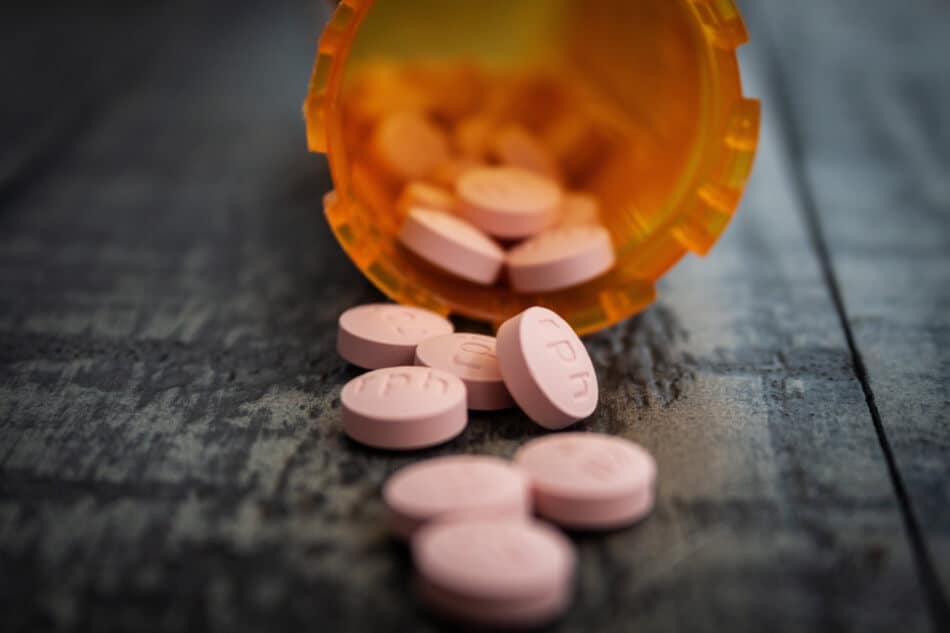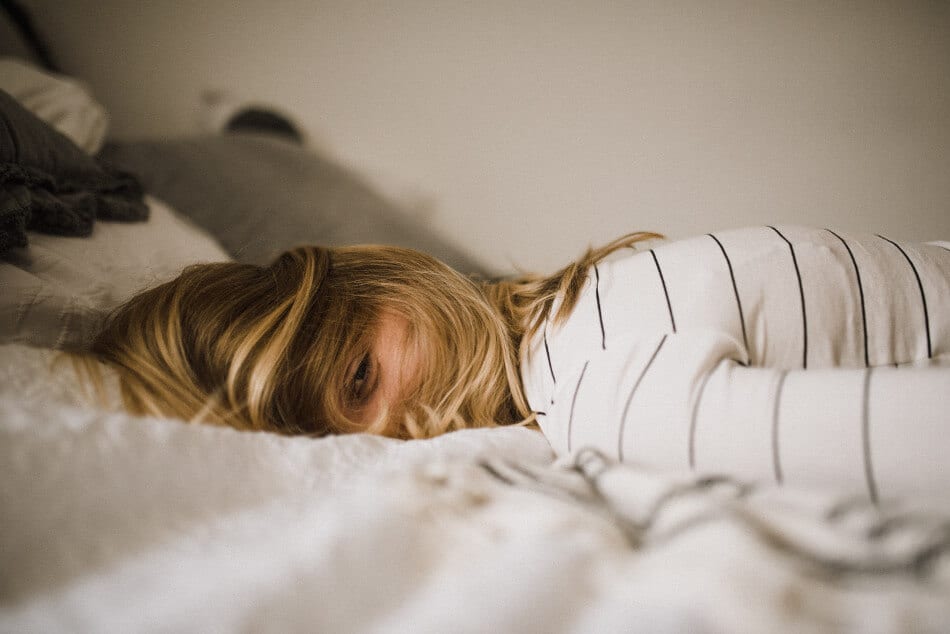We have all experienced a bad night’s sleep. Lying there counting sheep in the hope it will send us back to sleep. Or waking up in the middle of the night with a thousand thoughts running through our mind.
The alarm goes off at 6 am, and we’re back up and heading for work feeling like we had less than a minutes’ sleep.
A bad night’s sleep every now and then is fine. But when a bad night, turns into a bad week, turns into a bad month. Sleep deprivation starts to take over our lives. We feel tired all day, our work performance drops and we’re grouchy with our family.
At this point, it’s normal to turn to medication in the hope of improving your zzz’s. Yes, sleeping pills can be beneficial – even life-changing. Waking up after a good few hours sleep, feeling refreshed and ready to tackle the day is the best feeling in the world. Why shouldn’t we help that along if needed?
You’re not alone
Statistics show that in the UK alone, insomnia affects around a third of the population at any one time. And thousands of people suffer from the effects of sleeping pill addiction.
In fact, a 2012 study carried out for the Economic and Social Research Centre revealed that 1 in 10 British adults regularly take sleep medication.
There is a myriad of reasons why sleep may evade us.
At the start of the Coronavirus situation, the world was so worried about their future that insomnia levels that #cantsleep and #overthinking were trending globally on Twitter.
Which troubles keep you awake at night?
- Stress or anxiety
- Demanding work schedule
- Busy social life
- Alcohol or substance abuse
- Poor diet
- Illness
- Noisy partner!
- Uncomfortable bed
- Trauma or upsetting life events
- Financial worries
- Sleep apnea or other sleep disorder
What are sleeping pills?

Many different substances have been used to treat insomnia throughout the centuries. And as science progressed, different types of medication were found to successfully aid a better night’s sleep.
- Opium
- Alcohol
- Morphine (Greek God Morpheus – son of sleep)
- Chloral hydrate
- Barbiturates
- Antihistamines
- Melatonin
In recent years, many different drugs have hit the market, both traditional and natural alternatives.
The pharma industry is continually researching new sleep aids, and it’s no surprise when you look at the global figures of sleep deprivation, it seems we are living in an age of insomnia, and the market for sleep aids is huge.
The choice of sleeping pills available to us – both over the counter and via prescription is turning many of us into sleeping pill slaves.
We call them sleeping ‘pills’ because those that we purchase as consumers generally come in a ‘tablet’ format. However, the correct terms for sleep medication are ‘hypnotic’ or ‘soporific’ drugs. Both types of drug are used to encourage sleep where a sleep disorder exists and also in anaesthesia used in surgery.
Makes them sound a little bit more dangerous, doesn’t it?
We might think the sleeping aids we buy over the counter are harmless, but the most common non-prescription sleeping pills are addictive and should be taken with caution, as they can have seriously damaging consequences and lead to addiction.
Prescription sleeping pills
Drugs that are prescribed for sleeping problems and severe anxiety are termed as both sleeping pills and minor tranquillisers.
Both are sedatives, which means they have the effect of slowing down your body and brain’s functions and processes, such as our heartbeat, thought pattern and breathing.
In the UK, the are various drugs which are registered to treat sleep disorders or anxiety. Doctors are very cautious about prescribing sleeping pills or minor tranquilisers because of the harm they can cause.
Simply broken down, they include:
- Benzodiazepines – prescribed for both anxiety and sleeping problems.
- Drugs for sleeping problems only.
- Drugs for anxiety only.
These drugs can be recognised under different guises, depending on the reason you are being prescribed them, they will fall under the categories: sleeping pills, minor tranquillisers, sedatives or anxiety-busters. Doctors may also call them hypnotics, sedatives or anxiolytics.
Sedatives are prescribed to calm our nerves and reduce stress and anxiety. Hypnotics are used to improve sleep and anxiolytics are used to inhibit anxiety.
When used in any combination, they can be lethal.
Not all types of sleep medication are habit-forming, but many are. And when taken without caution they can cause serious physical and mental health problems; and lead to an overdose.
What are the signs of sleeping pill addiction?

A tolerance to sleeping pills can develop very quickly. Whether you have been prescribed a sleep medication or have bought an over-the-counter option, it’s generally recommended that you should take them for 2-4 weeks and a maximum of three months, depending on the type of medication and severity of your sleep or anxiety disorder.
After continued use, the effects can reverse:
- You do not feel fresher in the morning
- It feels like you have a drug hangover in the morning
- You feel disorientated when you wake up in the middle of the night
- You start to get blurry vision and feel confused during the day
When you take them for a longer period, you become reliant on the medication and can become addicted.
If you think you or a loved one may have an addiction to sleeping pills, these are some of the signs and symptoms:
- Mood swings
- Low sex drive
- Drowsiness during the day
- Impaired performance at work
- Memory loss
- Loss of interest in activities
- Lack of interest in socialising
- Apathy
- Depression
How sleeping pill addiction develops

Many people who become addicted to sleeping pills start with a real need to aid a better night’s sleep. They head to the chemist and choose an over-the-counter sleep aid, or their doctor may prescribe a prescription drug for a short period to get the sleep rhythm back on track.
However, sleep is addictive, and once we experience a wonderful night’s sleep, we want more. We worry that when we stop taking these wonder pills, our sleep pattern will once again become irregular. It becomes a craving that we need to keep feeding.
When we take any substance because we ‘enjoy’ rather than ‘need’ them, we call this abuse. And of course, it’s a vicious circle; the longer we take the sleeping pills, the higher dosage we need to maintain the effect. Before we know it, the abuse becomes an addiction.
And, when sleeping pill addiction sets in, we can suffer from extreme mental and physical health problems:
- Accidental Overdose
- Aggressive behaviour
- Agitation
- Delusions
- Depersonalisation (feeling detached from your surroundings)
- Depression
- Derealisation (feeling that your surroundings are not real)
- Hallucinations
- Increased anxiety
- Inappropriate behaviour, with loss of normal inhibitions
- Irritability
- Nightmares
- Personality changes
- Psychoses
- Rages
- Restlessness
- Suicidal thoughts or behaviour
There is another side to sleeping pill and minor tranquiliser addiction. A worryingly high number of people take them for a purely recreational purpose. This poses a very dangerous scenario, as most don’t take heed of the side effects or dosage limits. In which case, they could be taking them in excessive quantities.
When and how to get help for sleep addiction

If you are regularly taking a sleeping aid, then you need to wise up to the dangers of long-term use. Read through the signs and symptoms in this article.
If you are experiencing a combination of symptoms, it’s probable your sleeping pill consumption has got out of hand, and it’s time decide on a course of action.
At the least, you will need to ween yourself off them and look at natural ways to improve your sleep pattern. If you think that you are past this and maybe suffering from sleeping pill abuse or addiction, for example, if the problem is affecting your work performance, energy levels and personal relationships, then we highly recommend you get professional help.
As many sleep issues come from anxiety and worries, an addiction specialist will want to tackle the root of the problem that is causing you insomnia, together with the addiction itself.
In the last few years, therapists have been trialling Cognitive Behavioural Therapy to help chronic insomnia.
We already use CBT to help with substance addiction, but research shows that it can also be effective in helping insomniacs change the way they think and approach sleep itself.
At White River Manor, we offer a five-star inpatient rehabilitation centre for addiction. This is an ideal scenario if you have a serious addiction to sleeping pills.
The tailor-made program will take you out of your normal environment, where drugs are readily accessible, and put you into a supportive environment, where our addiction specialists will take you through to recovery using different therapies, wellness activities, self-care and relaxation techniques.
Getting treatment for sleeping pill addiction will not only help you restore healthy sleeping habits, but it will also lead to more energy, better concentration, higher performance levels and a happier home life.

